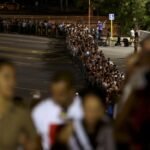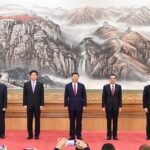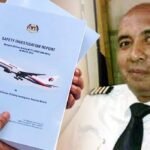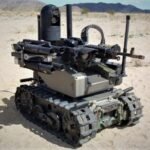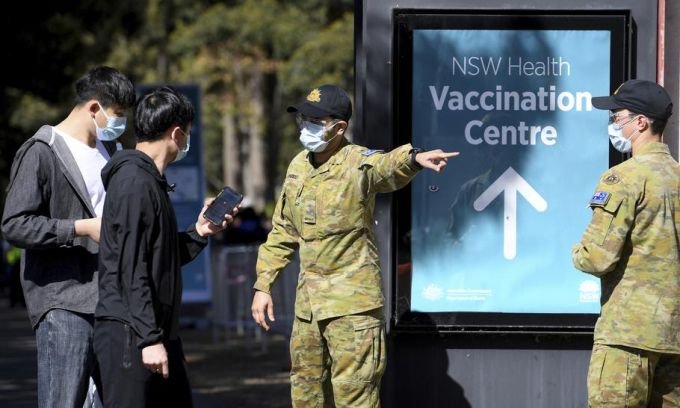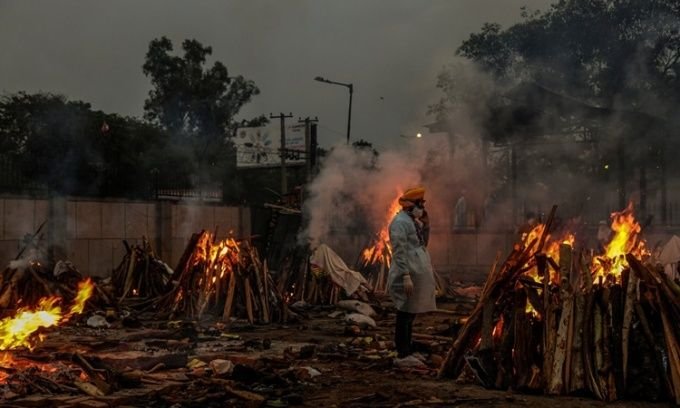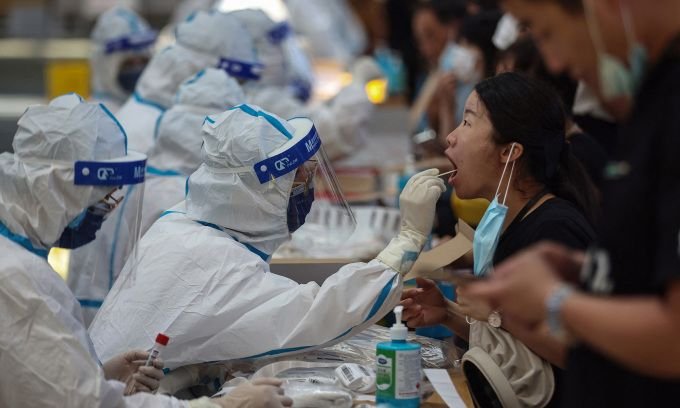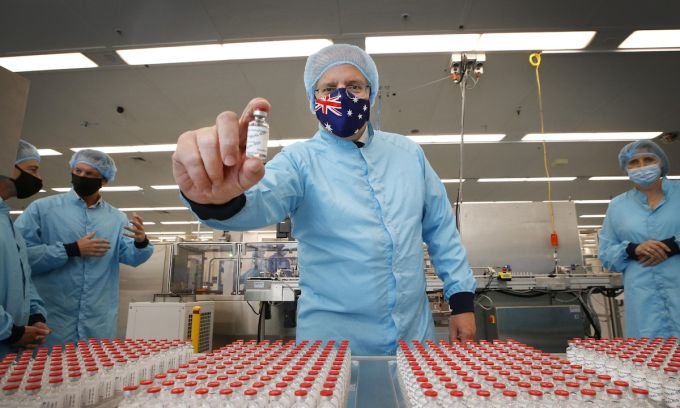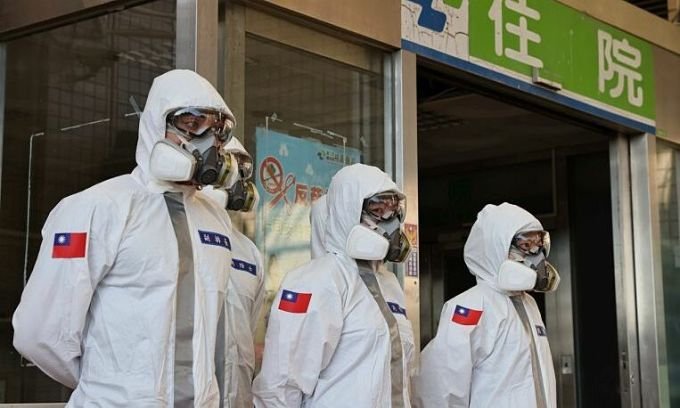The specific scope of the military’s support for the Covid-19 response varies between countries and between stages of the crisis.
As the focus gradually shifted to supporting the domestic response, some military forces conducted public order operations, ensuring public compliance with strict social distancing and movement restrictions.
Earlier this month, the Australian military deployed 300 unarmed soldiers to New South Wales state, to coordinate with local police to enforce the blockade in Sydney city and surrounding areas.
`We need the military’s support to enforce restrictions because a small number of residents think the regulations do not apply to them,` New South Wales state police leader David Elliott said.
Australian soldiers support people at a Covid-19 vaccination site in Sydney city on August 18.
In addition to implementing restrictive measures, countries’ militaries have deployed logistics forces to support the procurement, production, storage, transportation, and distribution of essential supplies, including personal protective equipment.
Additionally, every country’s military has a military medical force, helping to strengthen medical response when a domestic crisis occurs.
Right from the beginning of Covid-19 in Wuhan city in Hubei province, China, the country’s military has demonstrated a prominent role in anti-epidemic work, partly attributed to the Later Support Force.
At least 10,000 military medical staff have been mobilized to treat Covid-19 patients in Hubei, including relief forces deployed in several waves since the end of January 2020.
Helicopters of the Central Theater Command are also ready to conduct airlift operations.
In Korea, which was once the second largest epidemic area in the world after China and later became a model for fighting Covid-19, the military also played an effective support role in the process of controlling the pandemic.
In addition, the Korean military also contributed additional medical staff and treatment equipment for patients.
In the UK, the Ministry of Defense said in January that the military’s response to Covid-19 had become the largest domestic military campaign ever in peacetime, with more than 5,000 soldiers participating.
They help the National Health Service (NHS) implement the Covid-19 mass vaccination program, large-scale testing and other logistical activities.
The Indian Army, a country experiencing a disastrous second wave of the pandemic, in early May also established a Covid-19 Management Unit directly supervised by the Deputy Chief of Staff of the Army, in order to manage the pandemic.
During this serious outbreak, the Indian military is considered to play a frontline role in fighting the epidemic, deploying significant medical resources to support civil authorities, especially at 5 hospitals specializing in Covid treatment.
Hundreds of military medics from the armed forces have been deployed to Covid-19 treatment facilities run by the Indian Ministry of Defense across the country.
Dr. Euan Graham, a senior expert at the UK’s International Institute for Strategic Studies (IISS), said that the military is not always suitable to support civil emergency services, but this force helps
Meanwhile, Martin Bricknell, professor of conflict, health and military medicine at King’s College London, assesses how countries around the world are leveraging military capabilities to support the Covid-19 response
`Additional resources and military support around the world demonstrate the importance of considering the military health system as part of the country’s health economy,` Bricknell said.
